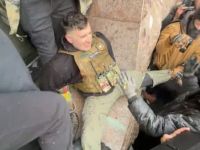US President-Elect George W. Bush is a scion of one of America's most eminent political families, and the legacy he brings with him to the White House is in many ways the result of three generations' worth of well-recorded political history. But even so, in a variety of areas it is unclear what change, if any, his administration will on have on US policy.
The Middle East, and in particular the business community in the Middle East, is one of those groups that are having difficulty fathoming the newcomer in Washington, who before entering politics had two careers—as owner of the Texas Rangers baseball team and as an oil-man.
But one thing does appear clear. Unlike some of his Republican colleagues, Bush is not an isolationist "I think that it is very important for American leaders to understand that America must not retreat within our borders," he declared during the run up to the November election.
So on what basis will the United States be prepared to impose its will abroad? "My core foreign policy principle is always to ask 'Will it be best for America?' Is America acting from strength, will this make us prosperous, will we be strong enough to promote our values? For me that's a threshold question," Bush said in a pre-election interview.
Despite his close relationship with the oil community, or possibly because of it, Bush has publicly taken a hard-line approach when it comes to dealing with pressure from foreign oil producers. During a debate, which took place in January, he was asked about the high prices of gasoline and the shortages of kerosene and diesel fuel. Bush singled out OPEC for driving up the price of oil by curtailing the supply. “We’ve got good relations with a lot of members of OPEC," he said. "If the president does his job, the president will earn capital in the Middle East and the president should have good standing. It is in the Saudis’ best interest for the price of oil to mellow out. It’s not only in our country’s best interest; it needs to be explained to them it’s in their best interest.”
He provided another perspective during a later interview. " We need an active exploration program in America. The only way to become less dependent on foreign sources of crude oil is to explore at home. And you bet I want to open up a small part of Alaska because when that field is online, it will produce a million barrels a day. Today we import a million barrels from Saddam Hussein. I would rather that a million come from our own hemisphere, our own country, as opposed from Saddam Hussein."
His attitude toward Iraq has been uncompromising. He has said that he would not ease sanctions, nor will he negotiate with the Iraqi president. Asked specifically in January what he would do about the fact that many US allies want to lift sanctions on Iraq. Bush indicated if he were president, the U.S. would continue its policy and that "one of the tests of a leader is to convince your allies what's right and what's wrong".
But in October, the Bush campaign prepared a position paper for Arab Americans, where it provided a detailed outline of its stand on the issue of economic sanctions on Iraq. Bush, the paper said, believes that "from this point forward, we should not impose any new sanctions that use food as a diplomatic weapon. Should [Bush] become president, America will always stand firm against hostile regimes and wherever possible, we'll make an effort to ease their suffering." — (Albawaba-MEBG)
© 2000 Mena Report (www.menareport.com)







